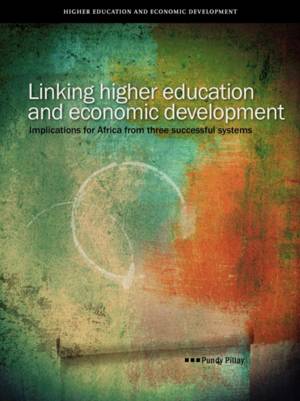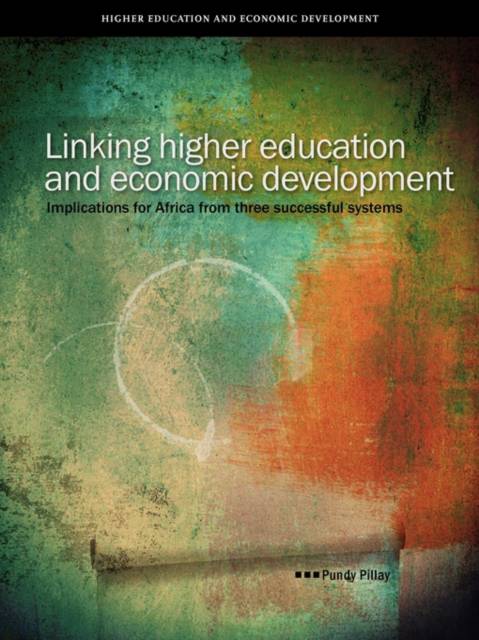
- Afhalen na 1 uur in een winkel met voorraad
- Gratis thuislevering in België vanaf € 30
- Ruim aanbod met 7 miljoen producten
- Afhalen na 1 uur in een winkel met voorraad
- Gratis thuislevering in België vanaf € 30
- Ruim aanbod met 7 miljoen producten
Zoeken
Linking Higher Education and Economic de
Implications for Africa from Three Successful Systems
Pundy Pillay
Paperback | Engels
€ 27,95
+ 55 punten
Omschrijving
Finland, South Korea and the state of North Carolina in the United States are three systems that successfully have harnessed higher education in their economic development initiatives. Common to the success of all these systems is, amongst others, the link between economic and education planning, quality public schooling, high tertiary participation rates with institutional differentiation, labour market demand, cooperation and networks, and consensus about the importance of higher education for development. Linking higher education and economic development: Implications for Africa from three successful systems draws together evidence on the three systems, synthesises the key findings, and distils the implications for African countries. The project on which the book is based forms part of a larger study on Universities and Economic Development in Africa, undertaken by the Higher Education Research and Advocacy Network in Africa (HERANA). HERANA is co-ordinated by the Centre for Higher Education Transformation in South Africa.
Specificaties
Betrokkenen
- Auteur(s):
- Uitgeverij:
Inhoud
- Aantal bladzijden:
- 118
- Taal:
- Engels
Eigenschappen
- Productcode (EAN):
- 9781920355449
- Verschijningsdatum:
- 19/08/2010
- Uitvoering:
- Paperback
- Formaat:
- Trade paperback (VS)
- Afmetingen:
- 210 mm x 279 mm
- Gewicht:
- 285 g

Alleen bij Standaard Boekhandel
+ 55 punten op je klantenkaart van Standaard Boekhandel
Beoordelingen
We publiceren alleen reviews die voldoen aan de voorwaarden voor reviews. Bekijk onze voorwaarden voor reviews.











